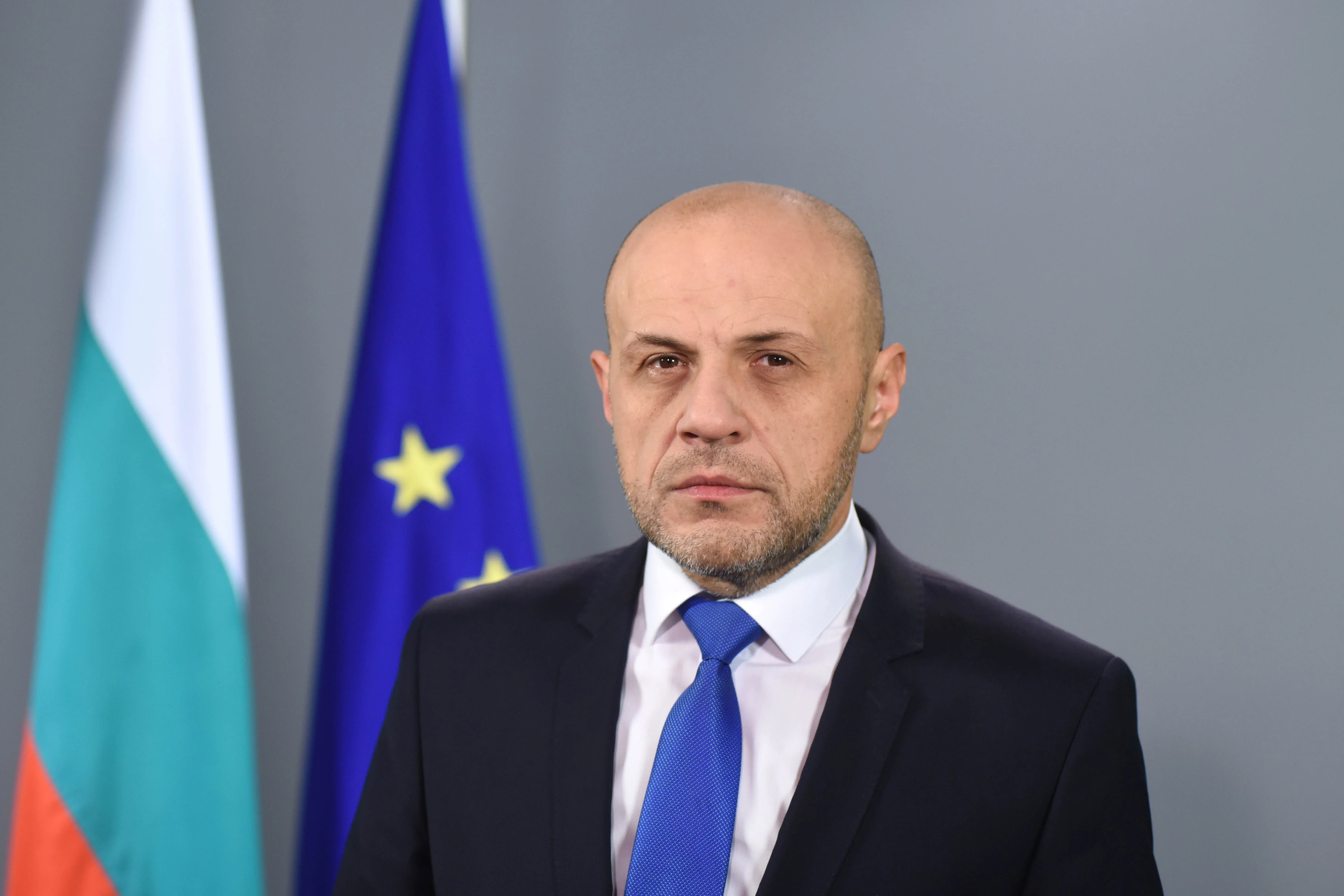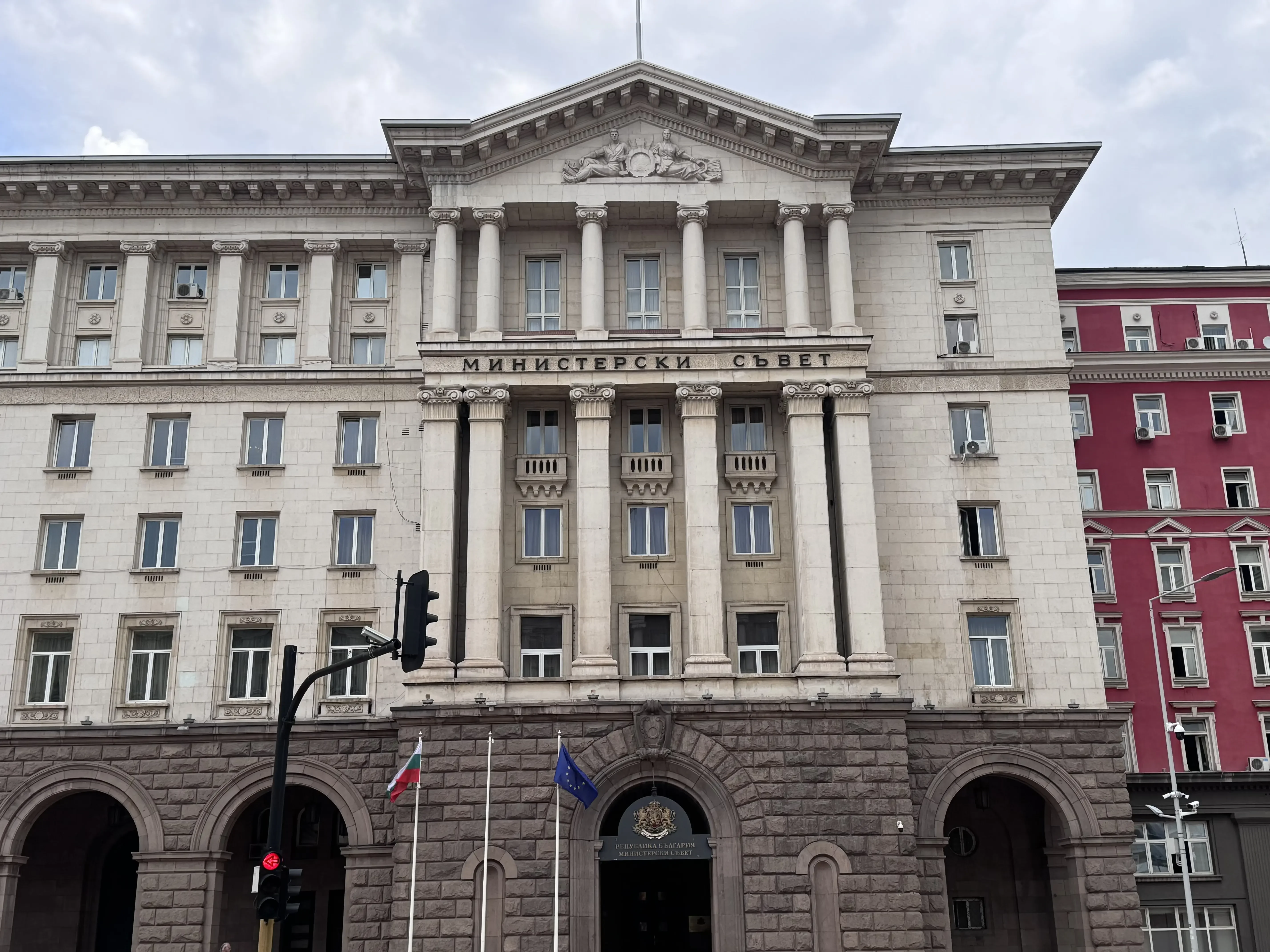The Constitutional Court ruled: The Speaker of the National Assembly cannot block a referendum
Sofia – The Speaker of the National Assembly does not have the authority to reject proposals for holding a national referendum, the Constitutional Court (CC) decided. The decision comes after a long discussion of a case concerning a request by the President for a referendum on a key issue.
The court categorically stated that the Speaker of Parliament cannot assess the requirements established by law for the admissibility of a national referendum, as the authority for this belongs entirely to the National Assembly, in accordance with the Constitution.
The decision was made after consideration of the President's request for a referendum on the euro, which was not allowed by the then Speaker of Parliament. All constitutional judges took part in the meeting, voting with a majority of 11:1 votes. The decision is signed with a dissenting opinion by one of the judges.
The CC emphasizes that the basic law defines the people as the sole source of state power. This power is exercised directly by it or through the bodies provided for in the Constitution. Accordingly, no member of parliament, and in particular the Speaker of the National Assembly, can exercise unilateral power on matters that are assigned to the collective body elected by the voters.
According to the CC, the exclusive authority of the National Assembly to decide on holding a national referendum implies its exclusive competence to assess all legal requirements for the admissibility of such a referendum. This assessment is considered a matter not just of procedure, but of constitutional competence.
The constitutional judges note that, unlike the acts of the National Assembly, subject to control for constitutionality, the unilateral acts of its Speaker are excluded from this control. The issuance of a unilateral act by the Speaker of Parliament, which prevents the exercise of the exclusive constitutional competence of the representative institution, is inadmissible, because in practice it circumvents the established procedure for control over the acts of the National Assembly.
As a result, the possibility of verifying compliance with the principles and provisions of the Constitution is frustrated, which risks calling into question and depriving of its content its supremacy in the exercise of state power, the CC writes in its decision.
This decision was reached after the President attempted to initiate a national referendum on an important issue.
On a certain date, the head of state proposed to hold a national referendum. Citizens were to answer a question regarding the introduction of the euro.
The proposal was submitted to the National Assembly, which alone can decide on holding a national referendum. The Speaker of Parliament, however, did not allow the proposal for consideration, citing non-compliance with the rules set out in the law and the Constitution.
In practice, according to the decision of the Constitutional Court, the Speaker was obliged to submit the proposal for a referendum for voting in the Plenary Hall.
You may also like
The question remains open: What personal responsibility will the former Speaker bear for the decision taken?








Коментари (151)
бъде_не_може
19.11.2025, 13:32Весело, най-сетне конституцията не може да бъде наруш
dimitar1974
19.11.2025, 13:36Хайде на ЕС
PESHAKA
19.11.2025, 13:36Да, и най-важното е, 4е Еврозонът в
Kombinator
19.11.2025, 13:37Ва-хей!!
ninja
19.11.2025, 13:39Грешнно, но най-много
BG_Tigar
19.11.2025, 13:40Слава Бога
BLAGOI
19.11.2025, 13:42ха 🙄
SUPERMAN
19.11.2025, 13:37Браво, КС
NoComment
19.11.2025, 13:39акониенебъдемсвободни,тогаваниенесме
4erveno_flag2015
19.11.2025, 13:39Да се види накрая какво значи да бъдеш под
538
19.11.2025, 13:39Най-важното е да се защитава демокрацията в Б
NOCOMMENT
19.11.2025, 13:40Господин придседател, не се хванеш, дали с 👏
MAGA
19.11.2025, 13:41нека се спрализи тази руски играчка 🤔
анесамолъжи_сегащеможедасекажеистината
19.11.2025, 13:41Сегащеможедасекажеистината,анесамолъжи!!
p. Стоянов
19.11.2025, 14:08яхно решение
DARKANGEL
19.11.2025, 14:11Ах да се радва България!!
MAGA
19.11.2025, 15:11Браво, КС 🇧🇬
не_може
19.11.2025, 15:12Да, не може да спира народа
MAGA
19.11.2025, 15:13Аз такава мисля
zlata_koti2010
19.11.2025, 15:19СлаваБългариq
babaganka
19.11.2025, 15:21Ама най-накраа
shefa
19.11.2025, 15:22Hahahaha,най-посленякойразбира!
PeshoFromSofia1996
19.11.2025, 15:23E, ни се изненадвам
78B
19.11.2025, 15:23Аби моля те, най-после
dimitar
19.11.2025, 15:30Благодаря на КС, най-накрая някой разбира не
fan_45
19.11.2025, 15:31ха ха, вече може да се случи референдум за ев
ха_бъл
19.11.2025, 15:33ха, днес най-после нещо се случва в бъл!
Maimunata1976
19.11.2025, 15:32Слава богу, Конституционният съд не е изгубил голове
THEREALIVAN
19.11.2025, 15:33Ха 😜
гошо
19.11.2025, 15:36Благодара на КС
BCBD1
19.11.2025, 15:36така трябва да е
holera2020
19.11.2025, 15:37Абе моля те, най-после
Гошо1999
19.11.2025, 15:38Сега всички ще може да изразят волята си
AS
19.11.2025, 15:52Ха
NOCOMMENT
19.11.2025, 15:55Благодарен за това решение
a. миланов
19.11.2025, 15:55Яко
petkan
19.11.2025, 15:55Ама какво си чува? Европейският дух започва да с
SUPERMAN
19.11.2025, 16:12Ах, най-голямото добро за България
7BC
19.11.2025, 16:15Слава България и ЕС
Maimunata
19.11.2025, 16:15Валява!!
xd
19.11.2025, 16:16КС
pich_007
19.11.2025, 16:39Браво на Конституционния съд
pr@v_eu2006
19.11.2025, 16:44Hа, не се колебай да прави правилните ре6ения!
superman
19.11.2025, 16:58КС
ludata
19.11.2025, 16:59Ах, най-после
pr@v_eu
19.11.2025, 17:02Абе молq те, най-добре решение 👏
МАЙСТОРА
19.11.2025, 16:59Слава България 👍
бацано
19.11.2025, 17:17Бацано
guest123
19.11.2025, 18:20Браво, КС
08B5B
19.11.2025, 18:22Абе мола те, най-после
здравей_най-накрая
19.11.2025, 18:30здравей, най-накрая 😅
BG_Tigar
19.11.2025, 18:30Ха, най-сетне нещо здраво
anoniemen
19.11.2025, 18:33Благодарим, КС
Maimunata2014
19.11.2025, 18:35Сига може да стане нещо добро за България
HOLERA
19.11.2025, 18:47Ах, най-накрая
GUEST123
19.11.2025, 18:49Сега може да се каже, че европейското право преодоля
сега
19.11.2025, 18:49Сега можем да прогласим и да бъдем свободнни 🇧🇬
blagoi
19.11.2025, 18:50сега може да започнем да се решават въпросите на
tony_stark2010
19.11.2025, 18:51благодарение на конституционния съд
P. Иванов
19.11.2025, 18:51СегаможедасеводиреферендумзаЕврозона
Prosto_Chovek1988
19.11.2025, 18:59слава бога, най-после кс ги изправи
PETROV
19.11.2025, 19:01ха-ха
2238
19.11.2025, 19:02хайде, дончо
AS
19.11.2025, 19:08Слава България
BAI_IVAN
19.11.2025, 19:10ах, най-добре
theRealIvan1981
19.11.2025, 19:12Яа, най-после накаква логика в този КС
BAT_JORDAN
19.11.2025, 19:32Великолепно
българиq_слава
19.11.2025, 19:36Слава Българиq
ludata
19.11.2025, 19:48Ах, най-накрая
BG_TIGAR
19.11.2025, 19:52Еврозонът иде
Майстора1997
19.11.2025, 19:52Сега ще ги хапиме, руснаците!
F68
19.11.2025, 19:59Ах, най-добре
KAKA_
19.11.2025, 20:20Валява, най-после КС ги изправя
ГРАЖДАНИН_Х
19.11.2025, 20:28Пази, това значи, че петата колона няма 🇧🇬
krisko_bg
19.11.2025, 20:32Ха
ЛУД_ПЕТКО
19.11.2025, 21:01Хайде, най-после
m. костов
19.11.2025, 21:11че сега изчакайме, когато нещото да стане
МАЙСТОРА
19.11.2025, 21:42Слава България
f. петров
19.11.2025, 21:44Трябва да бъде по-строго с руснаците в Е
peshaka1975
19.11.2025, 21:48Трябвадасерадваме,чеКСзащитавадем
32D
19.11.2025, 21:51Аби моля те 💩
ГРАЖДАНИН_Х
19.11.2025, 21:50Браво, КС
4. Петров
19.11.2025, 22:00СлаваБългария
PR@V_EU
19.11.2025, 22:02Ето че се празнувам 😂
ASD123
19.11.2025, 22:09ах, най-накрая
Doktora
19.11.2025, 22:12Хей, не чакай да ги изненадам
m. тодоров
19.11.2025, 22:12смесно е, че най-топлият хомосексуалист в
DOKTORA
19.11.2025, 22:15ха, не мислите ли, че този м
МАЙСТОРА
19.11.2025, 22:16E, чи конституцията не пуска да ги спре
Bat_Jordan1976
19.11.2025, 22:30Единствено правото
bg_gost
19.11.2025, 22:59Ами това е отлично
DIMITAR
19.11.2025, 23:01Сегавеченамадамогатдагизадържат
ГРАЖДАНИН_Х
19.11.2025, 23:03гледам, че кс си каза "не" на председателя на 😡
niki_bg
19.11.2025, 23:04Ах, най-красивото решение
DIMITAR
19.11.2025, 23:07валява
VASIL_P
19.11.2025, 23:07Хихе, русите не могат да ни спрат!!
41D
19.11.2025, 23:33яйце от божия дар
viki_qna
19.11.2025, 23:42Благодаренние на Конституционниq съд
viki_qna
19.11.2025, 23:47Слава България 👏
ASD123
19.11.2025, 23:48многодобре
peshaka1980
19.11.2025, 23:49Правонно
pich_007
19.11.2025, 23:50ама дqволът даде пушка на плевнелиев!!
4erveno_flag2000
20.11.2025, 00:00Наредено от КС, дали не са ли ги слу6али
PESHAKA
20.11.2025, 00:01Чудесно решение
DIMITAR
20.11.2025, 00:20абе моля те, най-после конституционния съд дава зд
asdasd
20.11.2025, 00:23Ах, една добра новина
zlata_koti1993
20.11.2025, 00:27Ако Русия може да прави каквото си иска, тогава ние
asd123
20.11.2025, 01:47Слава България!!
[email protected]
20.11.2025, 02:12Браво, КС
maga
20.11.2025, 02:13великолепно!!
DOKTORA
20.11.2025, 02:42КС
prosto_chovek
20.11.2025, 02:49КС 👏
bat_vasko
20.11.2025, 02:51ах, най-после
MAGA
20.11.2025, 02:50Яха, най-накрая
SUPERMAN
20.11.2025, 02:54Haha, ониq руски агенти не могат да ни контролират
ASD123
20.11.2025, 03:18КС
prosto_chovek
20.11.2025, 03:38здравей,дупките
кс_😡
20.11.2025, 03:38КС 😡
v. георгиев
20.11.2025, 03:41КС
3463
20.11.2025, 04:01Ах, най-хубшата новина за България!!
bat_jordan
20.11.2025, 04:09Ами казаха, че нещо друго е наставено!
AVTORITET
20.11.2025, 04:17Здравей, КС
barona
20.11.2025, 04:19Факт!
351A1
20.11.2025, 04:21кс
BG_Tigar
20.11.2025, 04:48кс
яа
20.11.2025, 04:52Яа, най-после
DARKANGEL
20.11.2025, 04:53Ах, най-посли
krisko_bg
20.11.2025, 05:50Ах,най-после!
FANATA
20.11.2025, 05:58Всичко още е добре
nocomment
20.11.2025, 05:59Точно като бихте чел
prosto_chovek
20.11.2025, 06:01Ха-ха, извинете, но не могат да спрат референдума
ГОШО
20.11.2025, 06:51Да, че конституцията не разбира за игнорантни полити
DARKANGEL
20.11.2025, 07:00Браво, КС
asd123
20.11.2025, 07:04Никога не се било 👎
Admina1984
20.11.2025, 07:17Ях,най-после
ninja
20.11.2025, 07:41Слава богу
майстора
20.11.2025, 07:59да се радваме, че конституционният съд е раз
a. костов
20.11.2025, 08:00Следната фаза от игра
най-после_ах
20.11.2025, 08:08Ах, най-после
BLAGOI
20.11.2025, 08:11ах, най-добре
h. Миланов
20.11.2025, 08:21Еврокомуните си стига 💥
REALIST
20.11.2025, 08:22ВъпрекитоваРусиавсеощенеразбира,чеб
Nqkoi2017
20.11.2025, 09:10Слава България
VANKATABG
20.11.2025, 09:50Ах,най-после 😏
ANONIEMEN
20.11.2025, 10:10Нека ги спрешат
NINJA
20.11.2025, 10:29Слава богу
AS
20.11.2025, 10:32валяне
конституционенсъд
20.11.2025, 11:20конституционенсъд
NIKI_BG
20.11.2025, 11:21Браво,КС
f. костов
20.11.2025, 11:25Дагихапим,тезифашистивпарламента
4ERVENO_FLAG
20.11.2025, 13:09ва-ля, русия